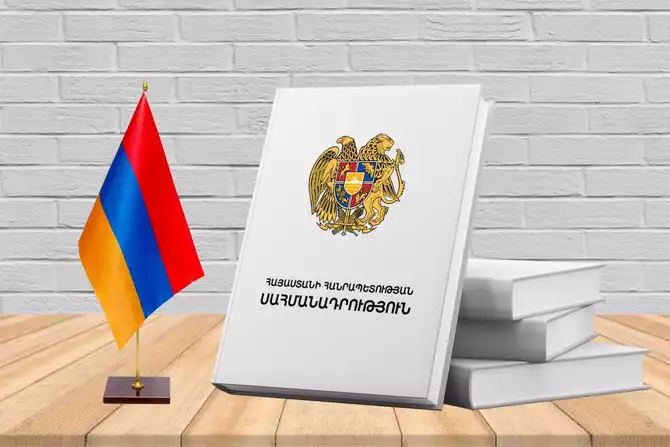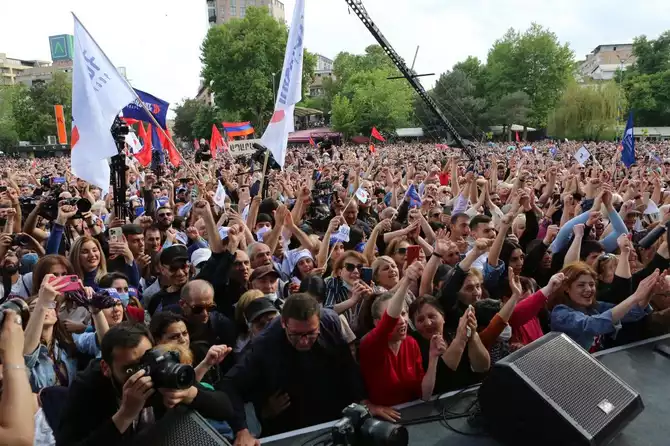
Source: Armenian blogger Natali Aleksanyan
By Asif Aydinly
As Armenia navigates a period of internal change and regional realignment, voices advocating for reconciliation and dialogue are becoming increasingly important. One such voice is that of Armenian blogger Natali Aleksanyan, who has gained attention for her bold support of peace with Azerbaijan and normalization of relations with Türkiye. In an interview with News.Az, Aleksanyan shares her perspective on the recent visit of Turkish journalists to Armenia, the ongoing constitutional reform process, and the challenges surrounding the social integration of Karabakh refugees. She also discusses the societal mood regarding peace with Azerbaijan and reflects on the personal pressure she faces for her outspoken views. Despite this, Aleksanyan remains steadfast in her belief that the majority of ordinary people on both sides do not want war - they want peace.
- Recently, a group of Turkish journalists visited Armenia. How did Armenian society react to this visit?
- The visit of Turkish journalists to Armenia was a unique event, something entirely new for our country. Judging by their own impressions, the trip took place in a very positive and constructive atmosphere. There was no negative reaction from the public - on the contrary, many people were eager to read the reports that would come out after the visit. Once the materials were published, they were well received. Personally, I hope that one day Azerbaijani journalists will also visit Armenia, and Armenian journalists will have the opportunity to visit Azerbaijan.
- Armenia’s Minister of Justice, Grigor Minasyan, recently stated that work on a new Constitution is ongoing and that the draft will be ready within 8 to 10 months. In your view, what changes are expected in the new Constitution?
- Based on Prime Minister Nikol Pashinyan’s initial remarks, the new Constitution will emphasize the development of the citizen as the primary source of legislative power and as the bearer of rights and responsibilities. Additionally, there has been frequent criticism that the current Constitution contains legal loopholes that allow certain individuals and organizations to circumvent the Criminal Code - I hope that issue will be addressed as well. Most likely, the preamble will also be revised to eliminate any territorial claims against neighboring countries.

Photo credit: alphanews.am
- On March 29, a protest was held in Yerevan, where refugees from Karabakh demanded that the government reconsider the terms of their social support. How widespread is the dissatisfaction among Karabakh refugees, and how effective is the assistance they are currently receiving?
- Interestingly, the protesters in question had refused to accept Armenian citizenship, which adds a significant layer to the situation. Officially, they were demanding increased financial support from the government, but in reality, it was an open protest against Prime Minister Nikol Pashinyan and his policies.
This was an anti-government rally, reportedly orchestrated by former President Robert Kocharyan. However, Armenian citizens quickly expressed their support for the prime minister, and the demonstrators were left with nothing to show for their efforts. These actions may even backfire - government representatives have already voiced plans to cease assistance to those who reject Armenian citizenship. It’s worth noting that the support provided thus far has been real and tangible.

Supporters of former Armenian President Robert Kocharian at Freedom Square in Yerevan. Photo by JAMnews
- You are known as an advocate for peace between Armenia and Azerbaijan. Have you faced any pressure because of your views?
- I face pressure on a daily basis, but I stand by a simple principle: I am not afraid of the barking of the Dashnak dogs - they cannot defeat me.
- In your opinion, how ready is Armenian society for peace with Azerbaijan?
- Let me give a personal example. The cover photo on my Facebook profile features Azerbaijani President Ilham Aliyev, yet 70 percent of my followers are from Armenia, and they support my peace-oriented activities. This speaks volumes - the people want peace.
Are they ready for peace? Perhaps not yet, but not because they are unwilling - it’s a matter of deep-rooted mistrust. Unfortunately, trust between our peoples on a grassroots level is close to zero, and that is the key challenge facing the leadership of both countries.
Still, one thing is absolutely clear to me: ordinary people do not want war.
Share on social media